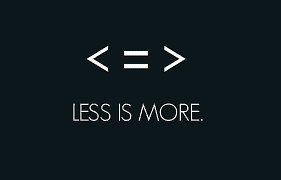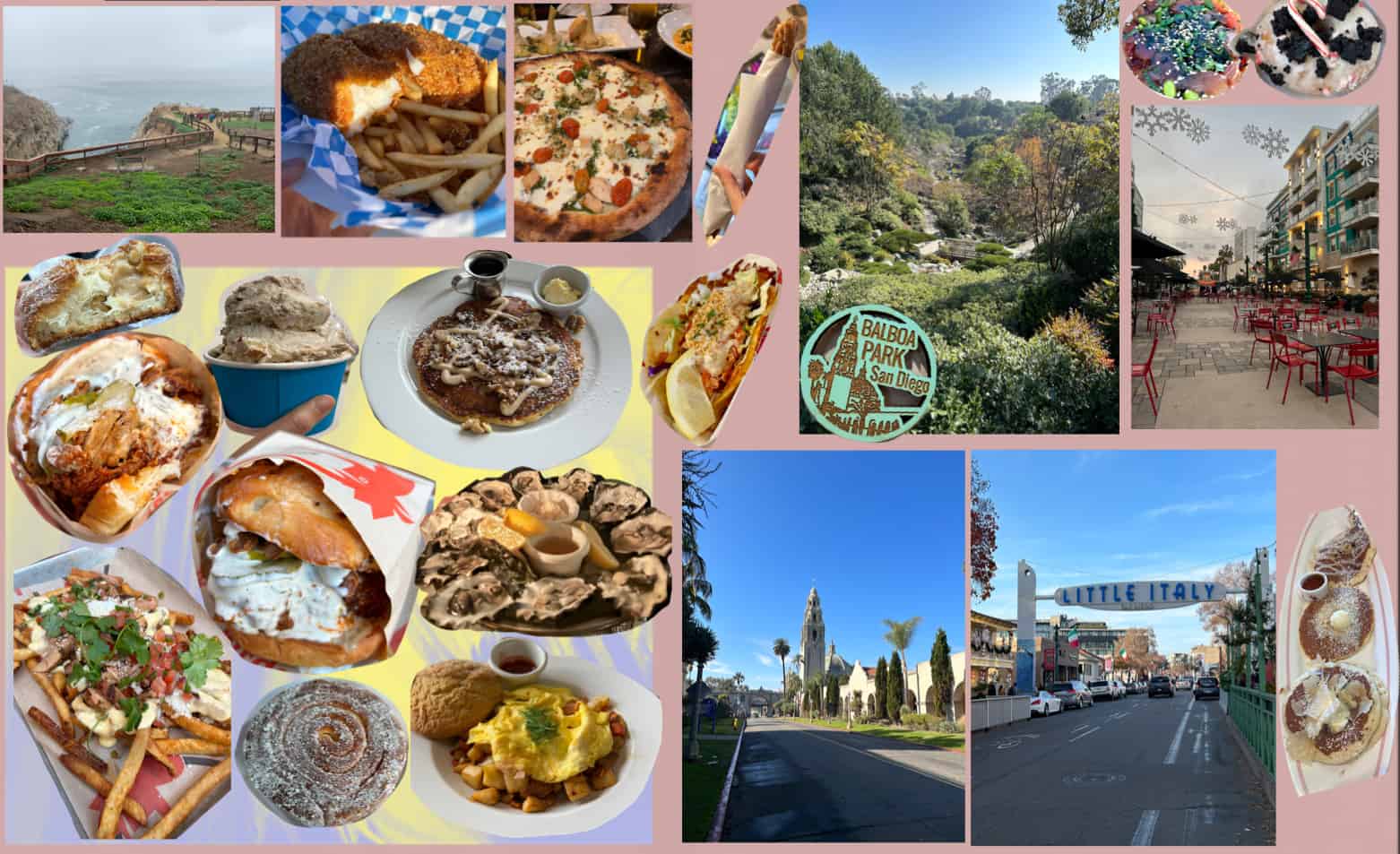SG_HSBC_CC_HSBC Revolution Credit Card SG_SCB_CC_Standard Chartered Journey Credit Card (Fee Waiver) SG_CIMB_CC_CIMB Visa Signature Card […]
AIf you had enjoyed reading The Art of Thinking Clearly and found it useful to apply to your finances and daily life, you will definitely love The Art of the Good Life by Rolf Dobelli. Part 1 and 3 of this book summary are here and here.
- Book summary: The Art of Thinking Clearly by Rolf Dobelli
- How The Art of Thinking Clearly can teach us about Investor Psychology (summary)
- How to outsmart biases in personal finance (be better with money)
- How to avoid financial self-sabotage
The Art of the Good Life, designed for practical living, has fifty-two ways to optimize your happiness
- Your two selves
- Experiencing self is the part of the conscious mind that experiences the present moment
- Remembering self is part of the conscious mind that gathers, evaluates and organises the few things that experiencing self has not thrown away
- Decide what is important to you. A fulfilled moment to moment life or a full photo album. Both are important.
- Experience trumps memory
- Take the time to consciously experience the present moment
- Part of good life is making provision for the future, once they are in place, focus wholly on the now.
- We have a questionable self image
- You change more rapidly than you think (likes, dislikes, traits, personality, values) and you may not want what you wanted
- Your life seems more amendable to planning than it actually is. Chance plays a big role
- Your fabricated life story makes it difficult to judge
- Part of the good life is to see yourself as realistically as possible - contradictions, shortcomings, dark side and all, so you will have a better chance of becoming who you want to be
- Final moments
- Better live a life well-lived than a shoddy life
- Age and death are the price we pay for a good life
- The spiral of self pity
- It makes no sense to wallow in the past as self pity doesn’t change anything
- In fact it does the opposite as self pity is an emotional whirlpool
- There is no basis in comparison with other people life
- No one's life is perfect
- If you can do something to mitigate the current problems in your life, do it.
- Complaining is a waste of time and self pity is doubly counterproductive. First you are doing nothing to overcome your unhappiness. Second, you are adding to your original unhappiness the further misery of being self-destructive
- Don’t ruin your own life with complains and comparison
- Feeling like a victim is a perfectly disastrous way to go through life

- How meaning can compensate for enjoyment, and the other way round
- Both enjoyment and meaning contribute to a good life
- Every experienced moment has two components: a pleasurable/ instant gratification moment and meaningful component
- Pleasure and purpose are the two cornerstones of happiness
- Strike a balance between enjoyment and meaning. Avoid the extremes, because your marginal utility increase as the further you wander away from the fringe
- It is best to switch between meaningfulness and enjoyment
- But if not
- An expression of total commitment
- There should be an area in life that is not up for negotiation. It contains your preferences, commitments and principles that need no justification
- Through wrong decisions, crisis, failures and disappointment, you know how to establish a circle of dignity
- Keep your circle of dignity tight, a small circle is more powerful than a larger one. Because the more you pack into your circle, the more these things are in conflict. You can’t satisfy a dozen priorities
- The less you pack into your circle, the more seriously you can commit to your beliefs and the better you can defend them
- Side note: clear thinking and rationality are important
- Don't break on the inside
- Those who braced themselves to make it through the day, and the next increase the chance of survival step by step
- You just have the persevere, assuming that is possible
- And only someone who refuses to break, within or without, will be able to do that.
- Someone who never gives up and cherishes their own will
- Brace yourself for arrows that attack your wills, principles, preferences via advertising, social pressure, unsolicited advice from all angles, soft propaganda, fashion trends, media hype and laws, and shore up your circle of dignity
- Your circle of dignity can only be tested under fire
- Keep the reins in your hand as long as possible when it comes to the things you hold sacred
- The devil’s bargain
- What is sacred and priceless: health, relationships, time
- Part of having a good life is having a small but delineated circle of dignity
- If you don’t outline your circle of dignity clearly enough, you will have to rethink every time a new deal or tempting offer comes along
- How to switch off the loudspeaker of worries in your head
- To sweep away worry, determine what you can influence and what you can’t.
- Address the former, don’t let the latter prey in your mind
- Have the serenity to accept the things you cannot change, courage to change the things you can and wisdom to know the difference
- Strategies
- Write down all your anxieties. Live the rest of the day worry free as your brain knows the concerns have been recorded
- Think of the worst case scenario and address it
- To sweep away worry, determine what you can influence and what you can’t.
- Take out insurance
- Engage in focused work. Focused, fulfilling work is better than meditation. It is a good distraction.
- Why you are better off without opinions
- A lot of questions are too complicated to reach a sensible resolution.
- A common mistake is to give a hasty answer to complex questions
- Poor decisions based on half baked opinion is disastrous
- Not always feeling like you need to have an opinion calms the mind and makes you more relaxed
- Select your topics of interest carefully. Opinion-less is an asset
- The fewer hasty opinions you hold, the better your life will be
- Steps to form an opinion
- Write about it in peace to organise your thoughts
- Get external viewpoints from people who think differently from you
- Question your opinion
- A lot of questions are too complicated to reach a sensible resolution.
- Your mental fortress
- Accept the existence of fate
- Everything you own, value or love is ephemeral. So, don’t set your heart on those things
- Relax, be glad if fate grants them to you but always be aware that they are fleeting, fragile and temporary
- Remember that the positive outweighs the negative in your life. All sweet things are tinged with bitterness. Whining is misplaced
- The last of human freedom is to choose one’s attitude to things
- Happiness can only be found in your mental fortress so invest in that
- The world is full of unrest and chance, and every so often your life will be upturned
- The greatest trials of fate you have already overcome - improbability of your contraception to bring you into the world
What can’t be taken from you are your thoughts, your mental tools, the way you interpret bad luck, loss and setbacks. This space is your mental fortress, a piece of freedom that can never be assailed
- Envy
- Envy has a bigger impact on your life satisfaction than physical affliction or financial ruin.
- The ability to manage it is fundamental to the good life. If you can pull that off, that is a major breakthrough
- The more we compare ourselves with others, the greater the danger of jealousy
- We seem to envy those who are similar to us in terms of age, career, environment and lifestyle
- There is always going to be someone who is doing better then you. Wipe envy from your emotions
- Avoid problems before you have to solve them
- Wisdom is prevention. It is a measure of the skill with which we navigate through life
- Virtually all difficulties are easier to avoid than solve
- Life is hard. Problems rain down on all sides. You can’t change that. But if you know where danger lurks, you can ward it off. You can evade all sort of obstacles.
- A clever person solves a problem, a wise person avoids it
- You may spend some time focusing on potential problems, track back and analyse what led to this imagined catastrophe, right down to the underlying causes. Try to address these issues so that the worst never happens
- How to manage your most important resource
- Focus and where you direct the focus are important
- Instead of choosing your objects of focus, we stuff our faces with tasting menu of what others select for us
- The moment we read it, we pay in focus, time or money
- These are our most important resources
- Focus cannot be divided. It is not like time and money. The attention you give to x is taking away from the person sitting opposite
- Act from a position of strength not weakness, you do not want to have a confused mind
- Unfortunately our brains are wired to respond straight away to minute of changes.
- Focus must be learned. You need to learn how to manage information, internet and news
- Focus and happiness are linked. Your happiness depends on where you allocate your attention
- A positive or negative event can determine your happiness depending on how much information you give them
- Each moment only comes once, you will get more out of life when you deliberately focus your attention on the right place
- Be critical, strict and careful when it comes to intake of information. Just like for food and medication
- Focus and where you direct the focus are important
- Read less but twice
- Read selectively and thoroughly
- Be immersive in slow focused reading
- Reading a book twice is more effective
- Don’t oversimplify things
- We think we understand things reasonably well until we are forced to explain them
- We are probably ignorant when it comes to big questions
- It is harmful that we take comfortable shortcuts by adopting opinions of others
- Think independently
- The quicker you know you don’t understand the world, the better you will understand the world
- How to realise that you are happy
- You may use mental subtraction to feel happy. Imagine how you would feel if you lost x
- Instead of thinking about all the things you don’t have, think how much you would miss the things you do have if you dint have them any longer
- Although you should reflect on the positives of your life every night and feel grateful, the level of gratefulness will diminish
- Gratitude is an explicit attempt to fight the effect of psychological Immune system by deliberating naming and emphasising the positive things we have going for us
- This system refers to the dissipation of happiness after something happens. The power of habitation has negated the joy we originally felt about them
- Mental subtraction in effect - Silver medallist aren’t necessarily happier than bronze metal list as they compare themselves to gold medallists. While bronze medallist compare themselves to runner ups
- Since our happiness is sometimes not very salient, we need to do what we can to make it more so, to live a good life
- The point of maximum deliberation
- Is the point at which the additional amount of information that can be gleaned by pondering an issue drops to zero
- If we want to go beyond the limits of our knowledge, we got to forge ahead instead of standing still. We got to act, not agonize
- The world don’t reveal itself to you through contemplation
- Beware that it is more comfortable to mull things over than to seize the initiative
- To know what you want to draw, you must begin to draw. It is same as in life
- To know what you want, it is best to just embark on something
- You won’t find a good life by thinking about it
- Introspective illusion is the mistaken notion that contemplation by itself can allow us to identify our true desires, purpose in life and the golden core of our happiness
- Self inquiry more likely will bog you down in moodiness, vague thoughts and diffuse emotional impulses
- Role reversal
- Thinking and doing are two fundamentally different ways of comprehending the world
- Actually stepping into the person’s shoe and experience the situation first hand is role reversal
- Don’t fall for the Great Men theory
- The notion that an individual can change the world is one of the greatest ideologies of our century
- Focusing illusion: nothing in life is as important as you think it is while you are thinking about it. We systematically overestimate the importance of our perspective
- Intentional stance: we assume an intention behind any change, whether it is intentional a not
- Key to the good life is not idolizing great men and not clinging to the illusion that you can be one yourself
- You shouldn’t put anyone on a pedestal including yourself
- No matter how extraordinary your accomplishments might be, the truth is that they would have happened without you. Your personal impact on the world is minute
- The only place where you can really make a difference is in your own life
- Focus on your surroundings
- Not believing too much in your own self importance is one of the most valuable strategies for a good life
- Our lives aren’t like classic crime
- The world isn’t actually just. It is immensely unjust
- You will have a better life if you simply accept the unfairness of the world as fact and endure it as stoicism
- You don’t have to know how occurrences fit together in the grand scheme of things
- Part of the good life is to accept that there is no just plan for the world
- Focus on your garden, your everyday life, and you will find enough weeds to keep you busy
- The things that happen to you across the course of up your life have little to do with whether you are a good or bad person.
- So accept unhappiness and misfortune with stoicism and calm.
- Treat incredible success and strokes of luck exactly the same
- Don’t build planes out of straw
- Stay far away from any type of cargo cults
- A cargo cult is an indigenist millenarian belief system, in which adherents perform rituals which they believe will cause a more technologically advanced society to deliver goods.
- Be on your guard, substance-less imitation of form is more common than we think
- See it for what it is and banish it from your life. Otherwise it will waste your time and narrow your perspective
- Don’t mimic the behaviour of successful people without truly understanding what made them successful in the first place
- Stay far away from any type of cargo cults
Thank you for reading! Please like my Facebook page to get the latest updates.
Please click here for Referral deals.






